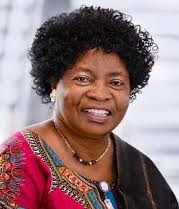 The COVID-19 pandemic has exposed the vulnerability of food systems and the importance of access to healthy food which should be promoted through robust extension services, says renowned nutrition advocate and AFAAS Patron, Prof. Ruth Oniang’o.
The COVID-19 pandemic has exposed the vulnerability of food systems and the importance of access to healthy food which should be promoted through robust extension services, says renowned nutrition advocate and AFAAS Patron, Prof. Ruth Oniang’o.
“Extension has suffered as governments has sort of relaxed on investing in extension and wanting to leave this to private sector but extension is more critical now when the world has faced crisis not just of health but of food and nutrition,” Prof. Oniang’o said.
“Africa have been fed by small holder farmers since independence of many countries and this continues to be the case but where smallholder farmers need inputs, finance and the know how to improve their production and extension plays a key role in this.”
Prof. Oniang’o said the work of AFAAS is very important in reminding governments to invest in extension even with rise in the use of new technology to deliver training and advise to farmers.
“We still need physical extension on the ground while we can use messaging via mobile gadgets but in Africa we still have a lot of smallholder farmers who are really at the bottom ladder when it comes to being internet and mobile phone savvy let alone being able to afford the bundles and extension services are needed more than before.”
The Corona pandemic is hitting at immunity which is determined and strengthened by the nutrients we take in and those nutrients come from food and farmers need support in improving the food they grow from which we derive nutrition, said Prof. Oniang’o noting that the pandemic is an opportunity to bring nutrition to the forefront of the development agenda.

“The pandemic has made us realise that what we eat should not just be about filling the tummy but to nourish our bodies and even protect us against pandemics. Nutrients come from our environment and not from these monoculture diets and this is where the extension comes in to complement the knowledge of growing healthy food sustainably,” said Prof. Oniang’o.
Noting that stunting and malnutrition were modern day concepts which were not there in the past because people in Africa ate nutritious food including vegetables and whole grains.
“What is Climate smart agriculture? This is what Africans always did because they looked after the soil, the water practised crop rotation and diversity. We are just giving these practises modern name or scientific names; we practised this all along, this is part of indigenous knowledge.”
